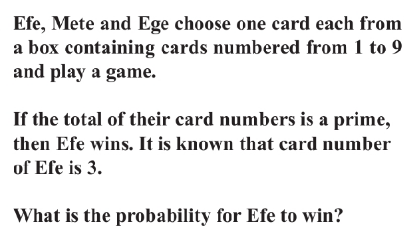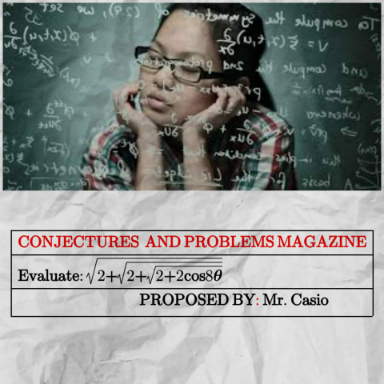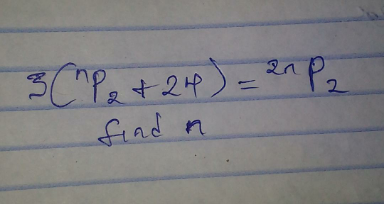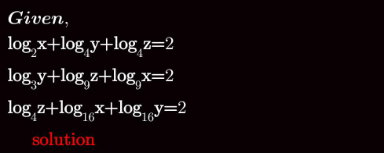
Question and Answers Forum
Permutation and CombinationQuestion and Answers: Page 5







|
Question and Answers Forum |
Permutation and CombinationQuestion and Answers: Page 5 |
| How many 3 digited numbers which are divisible by 1)3 2)4 3)5 4)6 5)7 6)8 7)9 with repetetion of digits is NOT allowed...one problem process |

|

|

|
| in how many ways can you put 40 identical balls into 20 identical boxes such that each box obtains at least one ball and at most 5 balls? |
| Find the number of ways a committee of 4 people can be chosen from a group of 5 men and 7 women when it contains people of both sexes and there are at least as many women as men. |
| B(a,b)=∫_0 ^1 x^(a−1) (1−x)^(b−1) dx Γ(s)= ∫_0 ^∞ t^(s−1) e^(−t) dt Why B(a,b)= ((Γ(a)Γ(b))/(Γ(a+b))) ? |
| ∫_0 ^∞ (y^(a−1) /((1+y)^b )) dy =^(u=(1/(1+y))) ∫_0 ^1 (((1−u)^(a−1) )/u^(a−1) ) u^b (du/u^2 ) = ∫_0 ^1 u^(b−a−1) (1−u)^(a−1) du = B(b−a,a)=((Γ(b−a)Γ(a))/(Γ(b))) |
| A three−digit odd number less than 500 is to be formed from 1,2,3,4 and 5. If repetition of digits is allowed, in how many ways can this be done? |

|

|

|

|
| solve: 15(2n)_C_((n−1)) =28(2n−1)_C_n . find n |
| n_c_(r+1) + n_c_r =n+1_c_(r .solve for n and r.) |
| solve: ((sin(10+x))/(sin(13+x)))=((sin27sin39)/(sin24sin57)) |
| In how many ways can you select 4 from 40 persons if every two persons may be selected together at most one time? |
| The number of five digits can be made with the digits 1, 2, 3 each of which can be used atmost thrice in a number is |
| How many 5-digit numbers from the digits {0, 1, ....., 9} have? (i) Strictly increasing digits (ii) Strictly increasing or decreasing digits (iii) Increasing digits (iv) Increasing or decreasing digits |
| 2n objects of each of three kinds are given to two persons, so that each person gets 3n objects. Prove that this can be done in 3n^2 + 3n + 1 ways. |
| The remainder of 13^(13) when divided by 99 is |
| ∫t^7 sin(t^7 )dt |
| 3 men and 4 women are to sit on a table. Calculate the number of possible sitting arrangements if (a) they sit in a row such that the men must not sit next to each other. (b) they sit in circular pattern and the clockwise and anticlockwise orders are considered the same. |
| show that two permutations are conjugate if their matrices are similar |
| How many permutations of the letters of the word EINSTEIN are possible if the EIN groups must not be next to eachother? |